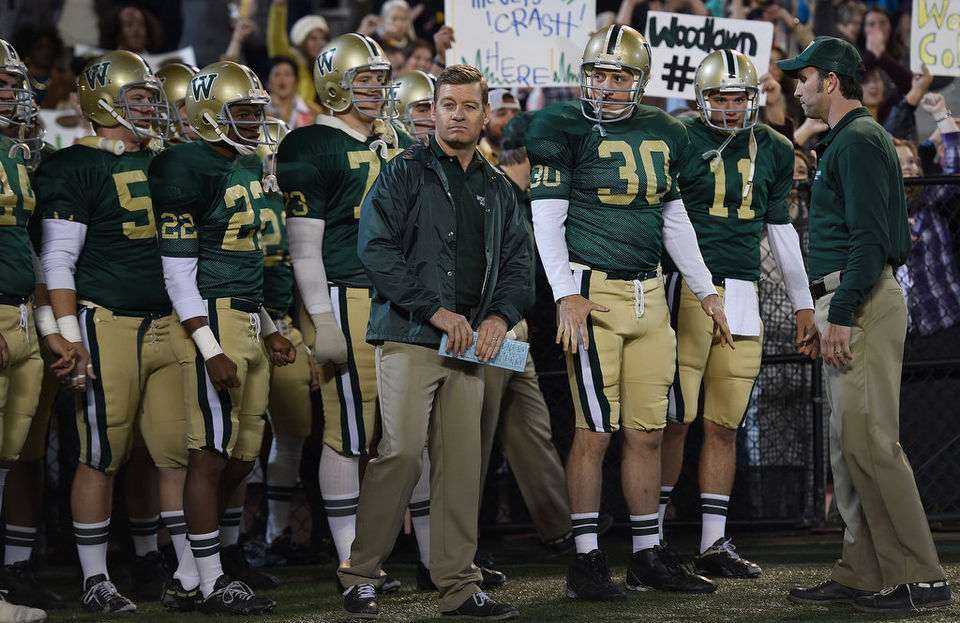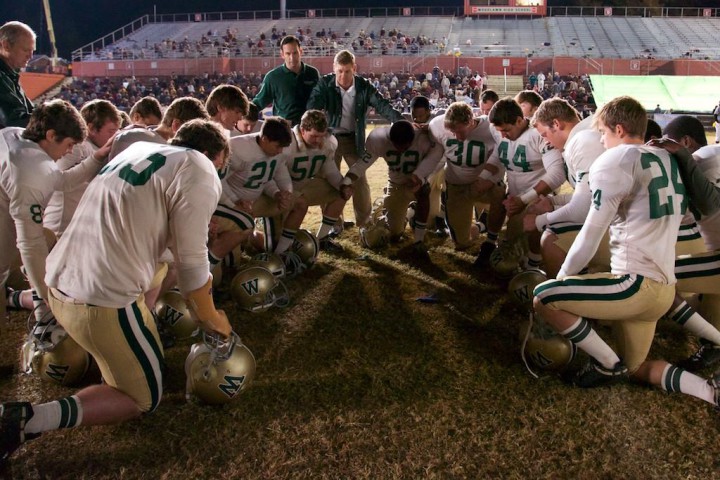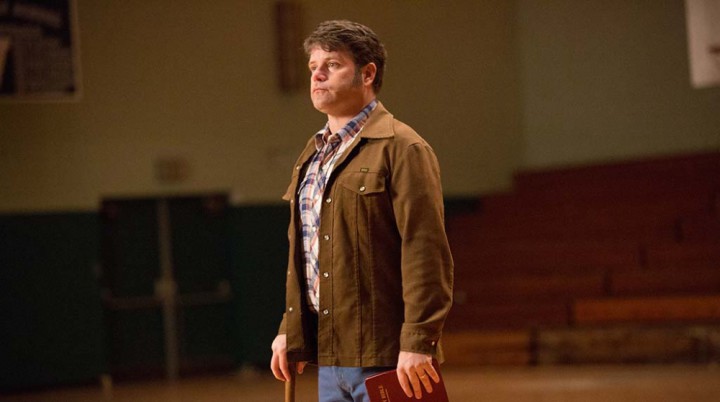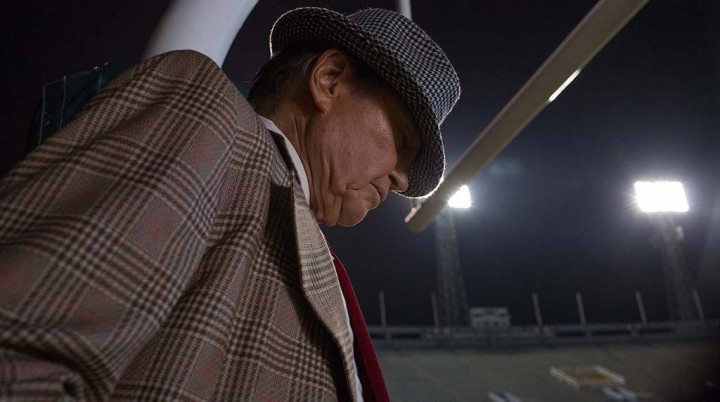I’ve lost track of how many uplifting Christian films I’ve seen this year, partly because there have been so many, partly because none of them have been memorable. They’re basically all the same — cheesy, sentimental, emotionally unrealistic — and when I think back on them, I remember few specifics, just a strange morass of corny schmaltz. The latest in this seemingly never-ending parade is Woodlawn, which is perhaps the best of the bunch. This is not an endorsement. Instead, it’s an idea of how low the bar has been set. All it takes is some production value, passable acting and solid direction and you at least have something that resembles a movie, even if that movie has all the worst tendencies of both Christian cinema (the nauseating sincerity, the simplistic worldview) and uplifting sports flicks (the predictability, the naivete).
Set in ‘70s Alabama (in case you don’t realize this, there’s a lot of Lynyrd Skynyrd on the soundtrack to remind you), Woodlawn is centered around the titular high school, one that’s struggling through integration. This is shown through the school’s football team and their coach, Tandy Gerelds (TV actor Nic Bishop), who’s facing the challenge of integrating his players. At the end of his rope, he finally allows the persistent and religiously exuberant Hank (Sean Astin) to speak to his players — something that leads to a mass conversion of the Woodlawn football team, which, slowly but surely, begins to show improvement. Helping things is Coach Tandy’s openness to playing his black players, specifically the gifted Tony (newcomer Caleb Castille), who soon gains the interest of the University of Alabama and legendary coach Bear Bryant (Jon Voight).
There’s little here that’s surprising or out of the ordinary. Odds are overcome, football games are won, perseverance and faith win the day. Whatever. The rest of the film that surrounds this is pretty thickheaded. Much of the film focuses on Coach Tandy’s skepticism on the power of God and its influence on his team, something he eventually can’t deny. But this is totally pegged to Tandy’s amazement at this “miracle” conversion of his football team and his idiotic shock that there are — surprise! — a whole lot of Christians living in rural Alabama in the ‘70s. There’s also the film’s simplemindedness revolving around the doe-eyed idea that we can cure racial divides through prayer, ignoring all the complex and culturally ingrained reasons these fissures exist in the first place — something that adds a layer of tonedeafness to the proceedings. Sure, the acting is good enough and the (too many) football scenes are cinematically engaging, but there’s nothing very interesting happening here unless you’re already converted. Rated PG for thematic elements, including some racial tension and violence.







I wish they’d keep the preaching in church and out of cinemas. I dont go into churches and shove science and art in their faces.
Which team does God root for?
The one that gets religion, I assume.
That must be why the Washington Generals always lose. They don’t pray.